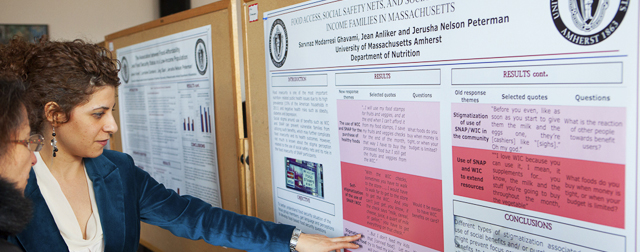Publication Date
2020
Journal or Book Title
Toxics
Abstract
Prenatal cadmium exposure at non-occupational levels has been associated with poor birth outcomes. The intake of essential metals, such as iron and selenium, may mitigate cadmium exposure effects. However, at high levels, these metals can be toxic. The role of dietary patterns rich in these metals is less studied. We used a linear and logistic regression in a cohort of 185 mother–infant pairs to assess if a Mediterranean diet pattern during pregnancy modified the associations between prenatal cadmium exposure and (1) birth weight and (2) preterm birth. We found that increased cadmium exposure during pregnancy was associated with lower birth weight (β = −210.4; 95% CI: −332.0, −88.8; p = 0.008) and preterm birth (OR = 0.11; 95% CI: 0.01, 0.72; p = 0.04); however, these associations were comparable in offspring born to women reporting high adherence to a Mediterranean diet (β = −274.95; 95% CI: −701.17, 151.26; p = 0.20) and those with low adherence (β = −64.76; 95% CI: −359.90, 230.37; p = 0.66). While the small sample size limits inference, our findings suggest that adherence to a Mediterranean dietary pattern may not mitigate cadmium exposure effects. Given the multiple organs targeted by cadmium and its slow excretion rate, larger studies are required to clarify these findings.
DOI
https://doi.org/10.3390/toxics8040090
Volume
8
Special Issue
Toxic Metals, Chronic Diseases and Related Cancers
Issue
4
License
UMass Amherst Open Access Policy
Creative Commons License

This work is licensed under a Creative Commons Attribution 4.0 License.
Recommended Citation
Gonzalez-Nahm, Sarah; Nihlani, Kiran; House, John S.; Maguire, Rachel L.; Skinner, Harlyn G.; and Hoyo, Cathrine, "Associations between Maternal Cadmium Exposure with Risk of Preterm Birth and Low Birth Weight: Effect of Mediterranean Diet Adherence on Affected Prenatal Outcomes" (2020). Toxics. 226.
https://doi.org/10.3390/toxics8040090
